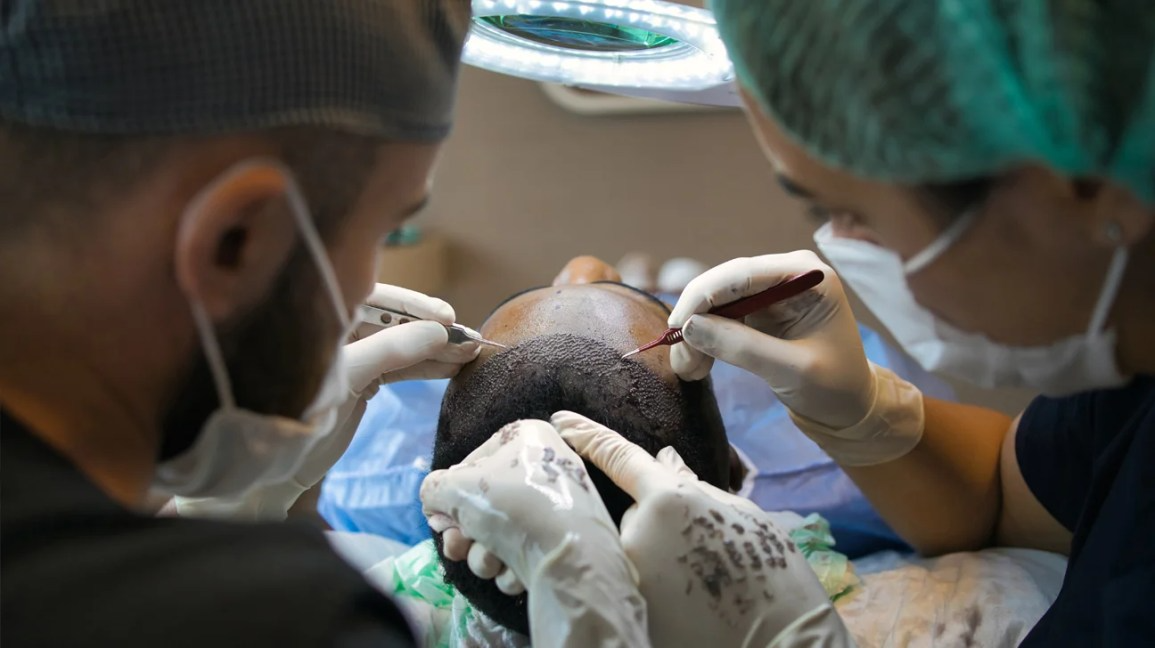In the ever-evolving landscape of medical procedures, the ethical considerations surrounding elective surgeries, including hair transplants, have become a topic of significant discussion. This comprehensive guide aims to explore the ethical dimensions of hair transplants in the context of Islam, shedding light on the principles that guide this intricate aspect of medical practice.
Understanding Hair Transplant Ethics in Islam:
Islamic teachings emphasize the significance of ethical practices in all aspects of life, including medical interventions. The principles derived from the Quran and Hadith serve as a guiding force in navigating the complexities of elective procedures such as hair transplants.
The Permissibility of Hair Transplants:
Delving into Islamic jurisprudence, we explore the permissibility of hair transplants. Scholars’ perspectives on cosmetic procedures provide valuable insights into the acceptance of these interventions within the Islamic framework.
Respecting the Human Body in Islam:
Central to Islamic teachings is the respect for the human body as a divine creation. This section examines the implications of elective medical procedures and the responsibility of individuals to maintain the sanctity of their bodies.
Consulting Islamic Scholars:
Recognizing the role of scholars in ethical decision-making, this section discusses the importance of seeking religious approval for hair transplants. The guidance provided by scholars becomes a crucial aspect of ensuring the procedure aligns with Islamic principles.
Ensuring Modesty in the Procedure:
Islamic guidelines on modesty extend to medical interventions. Here, we explore how these guidelines apply to hair transplant procedures, emphasizing the significance of maintaining modesty throughout the process.
Considering Intention and Motivation:
Intention holds paramount importance in Islam. This section underscores the significance of pure intentions in undergoing hair transplants, emphasizing the need to evaluate motivations for such cosmetic procedures.
Potential Concerns and Criticisms:
Addressing common concerns within the Muslim community, this section tackles criticism regarding cosmetic procedures. By addressing these concerns head-on, a clearer understanding of the ethical considerations emerges.
Alternative Approaches in Islam:
Beyond hair transplants, alternative methods for addressing hair loss in Islam are explored. This section delves into natural remedies and traditional practices that align with Islamic principles.
Case Studies and Experiences:
Real-life experiences of individuals who underwent hair transplants in adherence to Islamic ethics are shared. Lessons learned and insights gained contribute to a nuanced understanding of the ethical dimensions involved.
Cultural Perspectives on Hair and Beauty:
Balancing cultural norms with religious principles, this section explores the influence of culture on perceptions of beauty within the Muslim community. It delves into the challenges of navigating cultural expectations while adhering to ethical guidelines.
Ethics in the Medical Industry:
Collaboration between religious scholars and medical professionals is essential in ensuring ethical standards in the medical field. This section examines the interplay between ethics and the medical industry, emphasizing the need for a cohesive approach.
Community Awareness and Education:
Community awareness plays a pivotal role in ethical decision-making. This section discusses the role of education in enlightening the Muslim community about the ethics of hair transplants and other elective procedures.
Looking Towards the Future:
As medical practices evolve, so do ethical considerations. This section explores emerging trends in ethical medical practices within the Islamic context, presenting both challenges and opportunities for the future.
Conclusion:
In summarizing the key points discussed, it becomes evident that the ethical considerations surrounding hair transplants in Islam are multifaceted. A balanced approach that respects religious principles, cultural norms, and medical ethics is crucial for individuals navigating this realm.
FAQs:
- Is hair transplant considered permissible in Islam?
- Hair transplants are generally considered permissible, but seeking guidance from Islamic scholars is recommended for individual cases.
- How can one ensure a hair transplant aligns with Islamic ethics?
- Ensuring pure intentions, seeking religious approval, and maintaining modesty throughout the procedure are key factors.
- Are there alternative methods for addressing hair loss in Islam?
- Yes, natural remedies and traditional practices are explored as alternatives in alignment with Islamic principles.
- What role do cultural perspectives play in hair transplant decisions?
- Cultural influences should be balanced with religious principles to ensure ethical decision-making.
- How can the Muslim community be educated about the ethics of hair transplants?
- Community awareness programs and educational initiatives can play a crucial role in enlightening the Muslim community.
Read More: Faith and Follicles: Debunking the Myth of Hair Transplant in Islam

